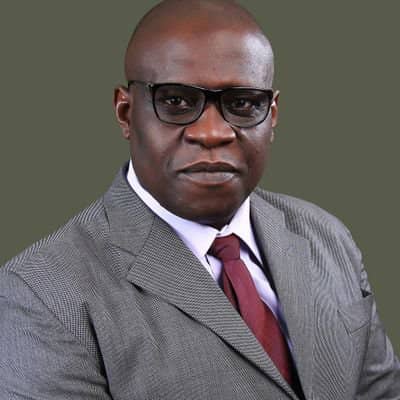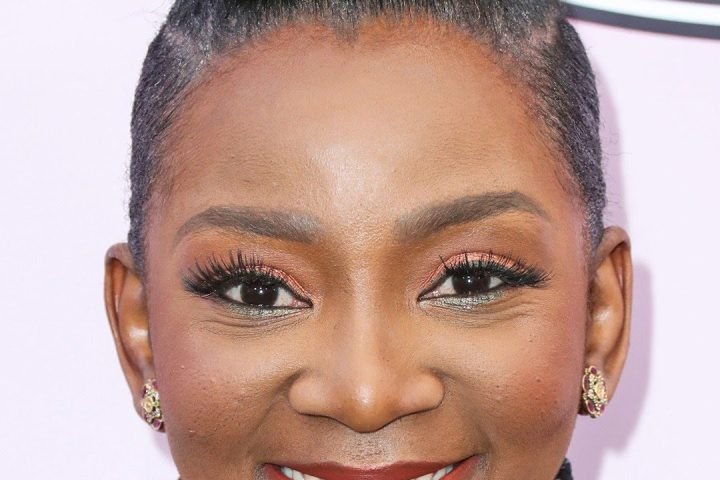Famed as the third largest in the world after Hollywood and Bollywood, both of which trail in production quantity, Nigeria’s film industry has experienced choking odds throughout its history. In fact, the serial deaths of Nollywood actors in Nigeria at a time seemed to be a tragic metaphor for a dying industry, once the toast of the movie world. That is, the deaths of more than 25 Nigerian actors in the last 10 years mimicked the struggles of the industry in sad ways.
But when Funke Akindele’s ‘A Tribe Called Judah’ became Nollywood’s first N1 billion film, the world was reminded of the potentials of an industry that has tottered on the precipice of fame and doom at the same time. Unfortunately, the Nigeria film and video industry has been nearer doom than boom, and the need for a rescue mission is urgent.
Join our WhatsApp ChannelREAD ALSO: 10 Things To Know About New NFVCB DG Shaibu Husseini
So, when, on Friday, January 12, 2024, Dr Shaibu Husseini became the new director general of the Nigeria Film and Video Censors Board (NFBCB), hope arose on the horizon. Journalist, performing artist, cultural administrator, public relations and media expert, and film curator, Dr Husseini appeared to be a good fit for the post. He is a graduate of mass communication at the undergraduate (first-class), masters (distinction) and PhD levels. His doctoral thesis on ‘Structure of Film Production Companies in Nollywood’, was not only seminal but also a good example of a man on a mission.
And then the challenge before him as director of the NFVCB. Dr Husseini appears to know the problems as an age-old documentary producer and commentator on Nigeria’s film industry and theatre development. Yet, a lot still needs to be done, and the agenda for a new video and film industry in Nigeria must be set and reset.
READ ALSO: Top-Grossing Nollywood Movies Of 2023 – ‘A Tribe Called Judah’ Leads With ₦854 Million
First, there are a number of issues and topics on which the film industry is rated the world over. These include a number of film productions, profitability, content, significance in citizen mobilization, cultural socialization, socio-economic and moral influence. The Nigerian film and video industry has been important in these areas for many years, doing well in some and lagging in others. At times, it has been a subject of intriguing paradoxes, churning out films, including box-office blockbusters, yet engrossed in the worst leadership and ethical crises.
Where the Problem Lies
Summarily, Nigerian films suffer from technical problems like poor sound and visuals. Producers are not able to separate between actors’ self-expression and total dependence on sex and nudity as key content and attention grabbers. There has been a lot of debate on when and how to use nudity, sex, erotica and immorality as content and attraction getting devices in films. Theories, preachments, sentiments and views abound.
A look at Bollywood’s Zee World productions, which comes from a developing country, India, just like Nigeria, tells you that it is possible to create complete attraction outside sex and erotica. Many Zee world films, like Nollywood and Hollywood, are built around love, romance and affection, but rarely do you see raw erotica and nudity like you see in Nollywood. Even with foreign films, “Black Panther: Wakanda Forever” hit over $767 million at the global box office in 2022, making it the fifth largest worldwide grossing film at the box office without glorifying sex and nudity. Sometimes, it seems the major attraction of Nollywood to Nigerians is the linguistic and cultural scenarios, actors and environmental ambiences, which the audience can easily identify with as opposed to fast and furious nature of foreign films.
The Agenda
First, the choking leadership tussle in the Nigerian film industry is a national shame. The sectional and ethnic profiling for which Nigeria is known has permeated the film industry. Any attempt to move the industry forward must start here. A globally known industry like Nollywood has existed for over 35 years without a national organisational structure, except for millions of actors guild divided across all kind of names ending in ‘wood.
On the moral front, Nigerians look up to the movie industry for cultural and ethical socialization. Western Europe and the US, which are major drivers of the global culture, extol violence, obscenity, nudity and freedom of self-expression. But it appears they show a lot of such films to the African audience, intriguing us with the wonders they have achieved in technology, politics/governance and social organisation. They have used films to drive growth in these areas in their own society.
Nigeria needs to make progress in these areas before achieving the maturity needed to contain a wide diversity of views on sex, nudity and erotica in films. It is the same for films on occultism, vulgarity, prostitution, kidnapping, money rituals and worship of wealth. Experts argue that it is not wrong to feature negative themes since they are also reflections of our society, but the recurrence makes it look as if society is all about these things.
It is also often said that the themes have influenced the contemporary youth towards negative vices, which are glorified throughout films, with very brief consequences shown at the end of the films. Experts have therefore called for a delicate balance between the choice of the negative themes as profit/attention drivers and concerns about the influence of film content on social mobilization development.
Piracy is another major issue. The BBC once found that out of every 10 Nigerian films, nine are pirated. Many satellite TV stations open only to use pirated films as major or even the only sources of content. The details of piracy are awash in the media, where Dr Husseini can glean the scale of the problem, and move to stem it.
In terms of themes, health, politics and governance are other areas that yearn for attention. Due to stringent laws and the poor tolerating nature of Nigerian rulers, there appears to be a reluctance of Nigerian movie producers to take up health and politics as subjects in a bid to call out government for bad governance and poor health conditions. It is an area for Dr Husseini to act upon. Training for competence and government support in equipment are sorely needed to improve on the technical quality of films.
Dr Husseini has a case of life on two fronts, arresting the trend towards the demise of Nollywood, and arresting the literal deaths of actors. Who says he can’t? His rich experience in the industry and the attendant laurels speak for him.
Dr Mbamalu, a Jefferson Fellow, is an Editor, Publisher and Communications Consultants
Dr. Marcel Mbamalu is a communication scholar, journalist and entrepreneur. He holds a Ph.D in Mass Communication from the University of Nigeria, Nsukka and is the Chief Executive Officer Newstide Publications, the publishers of Prime Business Africa.
A seasoned journalist, he horned his journalism skills at The Guardian Newspaper, rising to the position of News Editor at the flagship of the Nigerian press. He has garnered multidisciplinary experience in marketing communication, public relations and media research, helping clients to deliver bespoke campaigns within Nigeria and across Africa.
He has built an expansive network in the media and has served as a media trainer for World Health Organisation (WHO) at various times in Northeast Nigeria. He has attended numerous media trainings, including the Bloomberg Financial Journalism Training and Reuters/AfDB training on Effective Coverage of Infrastructural Development of Africa.
A versatile media expert, he won the Jefferson Fellowship in 2023 as the sole Africa representative on the program. Dr Mbamalu was part of a global media team that covered the 2020 United State’s Presidential election. As Africa's sole representative in the 2023 Jefferson Fellowships, Dr Mbamalu was selected to tour the United States and Asia (Japan and Hong Kong) as part of a 12-man global team of journalists on a travel grant to report on inclusion, income gaps and migration issues between the US and Asia.



















Follow Us